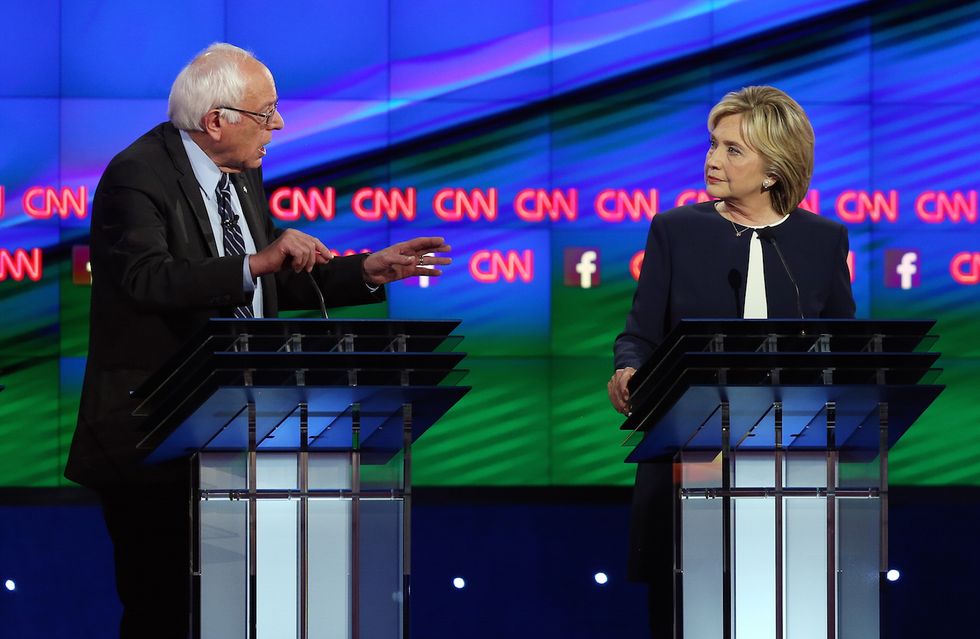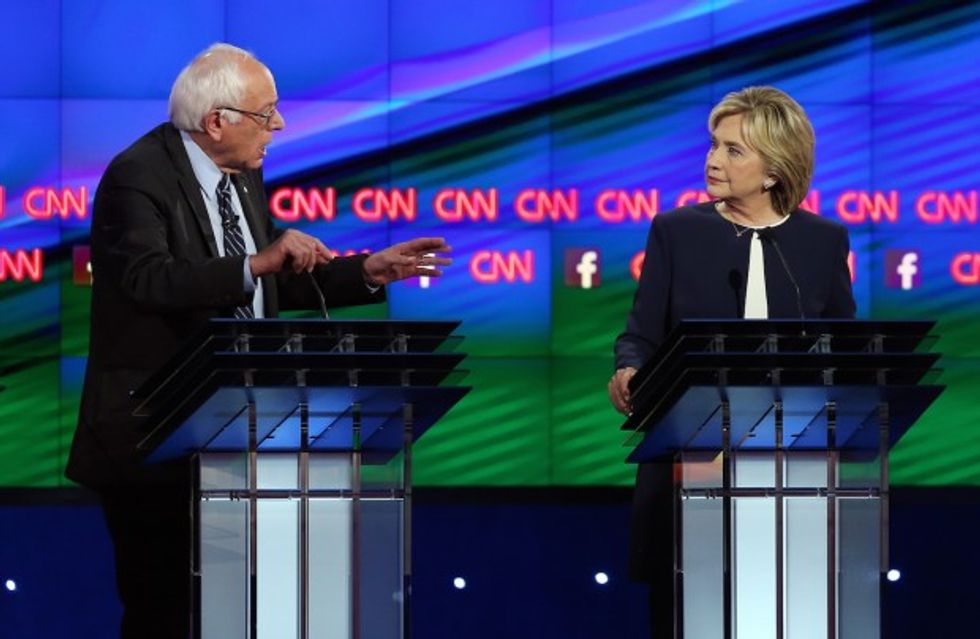
Joe Raedle/Getty Images

WASHINGTON (AP) — Hillary Rodham Clinton revised history in the Democratic debate when insisting she's not a flip-flopper on a trade deal she promoted as secretary of state but turned against as a presidential candidate.
Bernie Sanders overstated the share of wealth being taken by the richest Americans, a subject that goes to the core of his campaign.

Some of the claims in the debate among Democratic rivals Tuesday night and how they compare with the facts:
"I did say, I hoped it would be the gold standard'" of trade agreements.
Clinton did not say anything about mere hope in her speeches around the world in support of the trade deal. She roundly endorsed the deal taking shape.
In a November 2012 speech in Australia, she declared the Trans-Pacific deal "sets the gold standard in trade agreements," a sentiment she echoed in many venues.
Clinton said in the debate that when she looked at the final agreement last week, "it didn't meet my standards."
The final agreement, however, dropped or changed some provisions that liberal activist groups — the wing of the party she is assiduously courting at this stage of the campaign — had strongly criticized.
___
"Almost all the new income and wealth is going to the top 1 percent."
Sanders appears to be relying on outdated data. In the first five years of the economic recovery, from 2009 through 2014, the richest 1 percent of Americans captured 58 percent of income growth. While certainly a large gain, that is a lot less than "almost all."
In just the first three years of the recovery, from 2009 through 2012, the richest 1 percent did capture 91 percent of the growth in income. But part of that occurred because of impending tax increases on the wealthiest Americans that took effect in 2013.
Many companies paid out greater bonuses to their highest-paid employees in 2012 before the higher tax rates took effect. Those bonuses then fell back in 2013. And in 2014, the bottom 99 percent finally saw their incomes rise 3.3 percent, the biggest gain in 15 years.
—